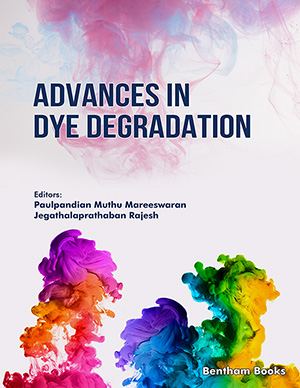Abstract
Aim: We screened key angiogenesis-related lncRNAs based on colon adenocarcinoma (COAD) to construct a RiskScore model for predicting COAD prognosis and help reveal the pathogenesis of the COAD as well as optimize clinical treatment.
Background: Regulatory roles of lncRNAs in tumor progression and prognosis have been confirmed, but few studies have probed into the role of angiogenesis-related lncRNAs in COAD.
Objective: To identify key angiogenesis-related lncRNAs and build a RiskScore model to predict
the survival probability of COAD patients and help optimize clinical treatment.
Methods: Sample data were collected from The Cancer Genome Atlas (TCGA) and Gene Expression Omnibus (GEO) database. The HALLMARK pathway score in the samples was calculated using the single sample gene set enrichment analysis (ssGSEA) method. LncRNAs associated with angiogenesis were filtered by an integrated pipeline algorithm. LncRNA-based subtypes were classified by ConsensusClusterPlus and then compared with other established subtypes. A RiskScore model was created based on univariate Cox, least absolute shrinkage and selection operator (LASSO) regression and stepwise regression analysis. The Kaplan-Meier curve was drawn by applying R package survival. The time-dependent ROC curves were drawn by the timeROC package. Finally, immunotherapy benefits and drug sensitivity were analyzed using tumor immune dysfunction and exclusion (TIDE) software and pRRophetic package.
Results: Pathway analysis showed that the angiogenesis pathway was a risk factor affecting the prognosis of COAD patients. A total of 66 lncRNAs associated with angiogenesis were screened, and three molecular subtypes (S1, S2, S3) were obtained. The prognosis of S1 and S2 was better than that of S3. Compared with the existing subtypes, the S3 subtype was significantly different from the other two subtypes. Immunoassay showed that immune cell scores of the S2 subtype were lower than those of the S1 and S3 subtypes, which also had the highest TIDE scores. We recruited 8 key lncRNAs to develop a RiskScore model. The high RiskScore group with inferior survival and higher TIDE scores was predicted to benefit limitedly from immunotherapy, but it may be more sensitive to chemotherapeutics. A nomogram designed by RiskScore signature and other clinicopathological characteristics shed light on rational predictive power for COAD treatment.
Conclusion: We constructed a RiskScore model based on angiogenesis-related lncRNAs, which could serve as potential prognostic predictors for COAD patients and may offer clues for the intervention of anti-angiogenic application. Our results may help evaluate the prognosis of COAD and provide better treatment strategies.
Keywords: Colon adenocarcinoma, angiogenesis-related lncRNAs, RiskScore model, prognosis, drug sensitivity, immune microenvironment.
[http://dx.doi.org/10.1038/s41571-020-00445-1] [PMID: 33219329]
[http://dx.doi.org/10.1053/j.gastro.2020.12.068] [PMID: 33417940]
[http://dx.doi.org/10.1093/bjs/znab382] [PMID: 34921604]
[http://dx.doi.org/10.3389/fimmu.2022.934083] [PMID: 35967414]
[http://dx.doi.org/10.1016/S0140-6736(21)01206-X] [PMID: 34509219]
[http://dx.doi.org/10.1038/s41571-021-00473-5] [PMID: 33580222]
[http://dx.doi.org/10.1093/bib/bby055] [PMID: 30010717]
[http://dx.doi.org/10.1038/s41580-021-00447-6] [PMID: 35079163]
[http://dx.doi.org/10.3390/ijms23116258] [PMID: 35682937]
[http://dx.doi.org/10.1093/bib/bbab504] [PMID: 34891154]
[http://dx.doi.org/10.1002/cac2.12108] [PMID: 33119215]
[http://dx.doi.org/10.1109/JBHI.2020.3027680] [PMID: 32991297]
[http://dx.doi.org/10.3390/ijms20225758] [PMID: 31744051]
[http://dx.doi.org/10.1016/j.trac.2019.05.009]
[http://dx.doi.org/10.7150/ntno.77564] [PMID: 37064613]
[http://dx.doi.org/10.32604/Oncologie.2021.016155]
[http://dx.doi.org/10.1016/j.pharmthera.2018.11.004] [PMID: 30439456]
[http://dx.doi.org/10.1093/bioinformatics/btz210] [PMID: 30903160]
[http://dx.doi.org/10.3389/fcell.2021.751578] [PMID: 34616746]
[http://dx.doi.org/10.3389/fimmu.2022.955187] [PMID: 36238279]
[http://dx.doi.org/10.1371/journal.pmed.1001453] [PMID: 23700391]
[http://dx.doi.org/10.1158/0008-5472.CAN-14-1592] [PMID: 25320007]
[http://dx.doi.org/10.1158/1078-0432.CCR-11-3066] [PMID: 22496204]
[http://dx.doi.org/10.1111/jcmm.16696] [PMID: 34101338]
[http://dx.doi.org/10.1038/s41467-020-14802-2] [PMID: 32081859]
[http://dx.doi.org/10.1093/bioinformatics/btx513] [PMID: 28961746]
[http://dx.doi.org/10.3389/fimmu.2022.871008] [PMID: 35734177]
[http://dx.doi.org/10.1016/j.neuron.2018.12.006] [PMID: 30606613]
[http://dx.doi.org/10.1186/s40880-019-0427-z] [PMID: 31771653]
[http://dx.doi.org/10.3389/fimmu.2021.655697] [PMID: 33815418]
[http://dx.doi.org/10.1038/s41598-017-16747-x] [PMID: 29192179]
[http://dx.doi.org/10.11613/BM.2011.029] [PMID: 22420233]
[http://dx.doi.org/10.1093/bib/bbaa148] [PMID: 32698196]
[http://dx.doi.org/10.1089/omi.2011.0118] [PMID: 22455463]
[http://dx.doi.org/10.1016/j.celrep.2016.12.019] [PMID: 28052254]
[http://dx.doi.org/10.1158/2326-6066.CIR-18-0822] [PMID: 31043417]
[http://dx.doi.org/10.1038/s41591-018-0136-1] [PMID: 30127393]
[http://dx.doi.org/10.1038/nature25501] [PMID: 29443960]
[http://dx.doi.org/10.1371/journal.pone.0107468] [PMID: 25229481]
[http://dx.doi.org/10.1038/s41571-019-0181-9] [PMID: 30816337]
[http://dx.doi.org/10.3390/cancers12051172] [PMID: 32384792]
[http://dx.doi.org/10.3389/fonc.2022.1003440] [PMID: 36439446]
[http://dx.doi.org/10.1016/j.mehy.2020.110458] [PMID: 33341528]
[http://dx.doi.org/10.7150/thno.30056] [PMID: 30867812]
[http://dx.doi.org/10.3390/ijms23031181] [PMID: 35163100]
[http://dx.doi.org/10.2174/1568009621666211103113339] [PMID: 34732116]
[http://dx.doi.org/10.1186/s12943-021-01372-0] [PMID: 34172072]
[http://dx.doi.org/10.1186/s12859-022-04969-4] [PMID: 36258178]
[http://dx.doi.org/10.3389/fimmu.2022.881359] [PMID: 35911752]
[http://dx.doi.org/10.1016/j.scib.2021.01.001] [PMID: 36654155]
[http://dx.doi.org/10.1186/s12967-021-02707-7] [PMID: 33499872]
[http://dx.doi.org/10.15252/embr.202154128] [PMID: 35876654]
[http://dx.doi.org/10.1186/s12885-021-07995-2] [PMID: 33750326]
[http://dx.doi.org/10.3389/fonc.2021.701495] [PMID: 34327141]
[http://dx.doi.org/10.1080/15384101.2018.1558872] [PMID: 30569799]
[http://dx.doi.org/10.1038/s41419-020-02926-8] [PMID: 32908134]
[http://dx.doi.org/10.1016/j.immuni.2019.03.024] [PMID: 30995507]
[http://dx.doi.org/10.3390/ijms20112767] [PMID: 31195692]
[PMID: 32706067]





























